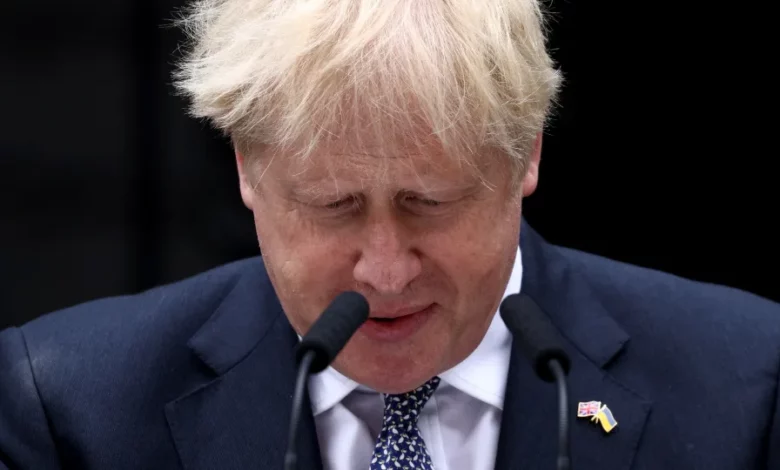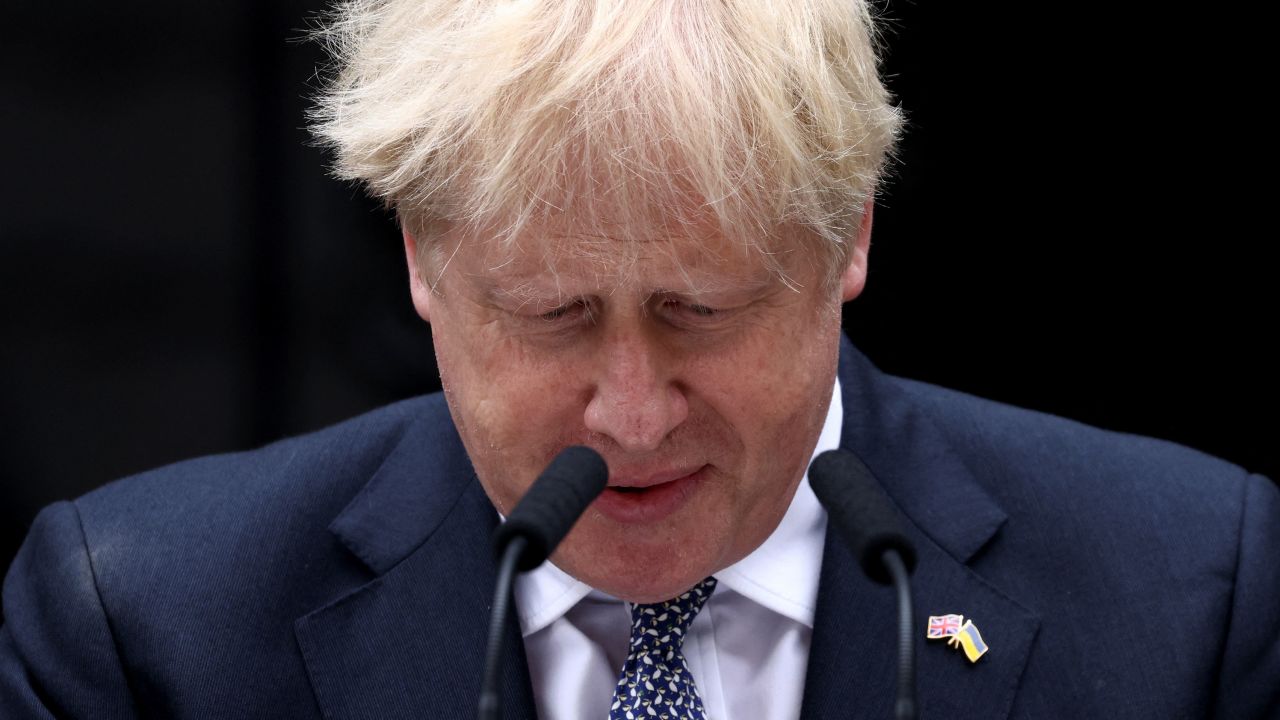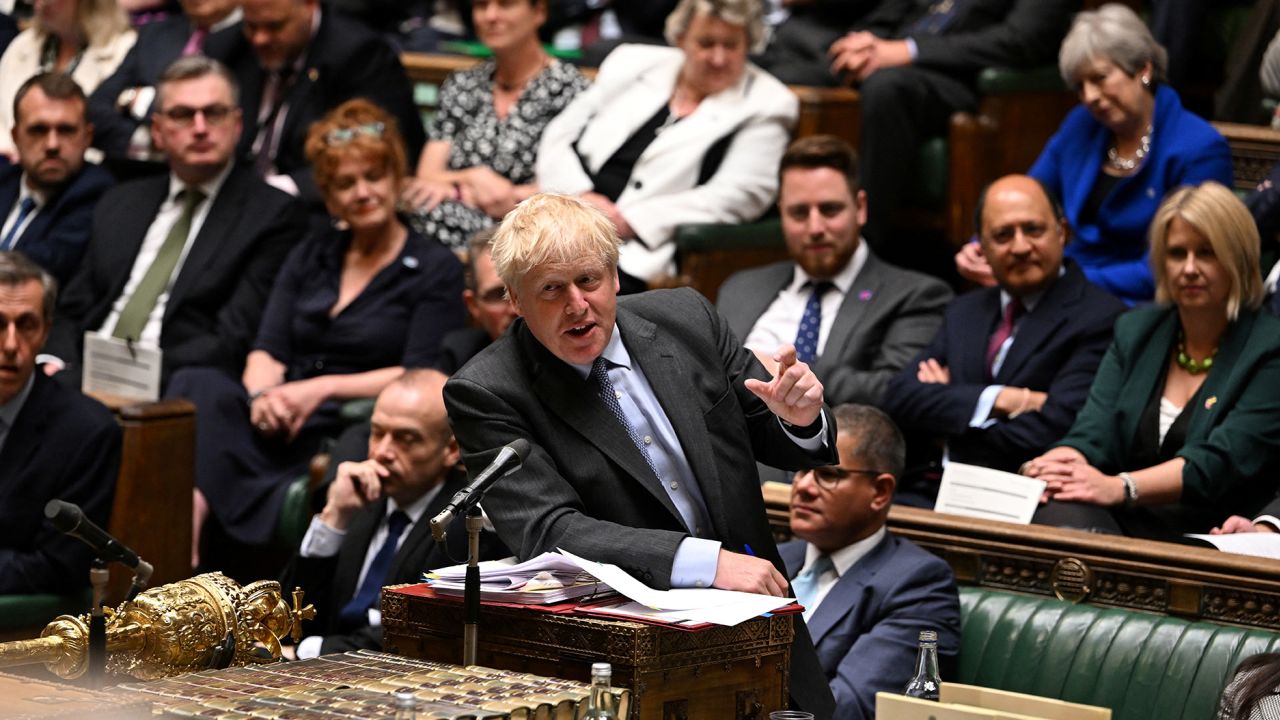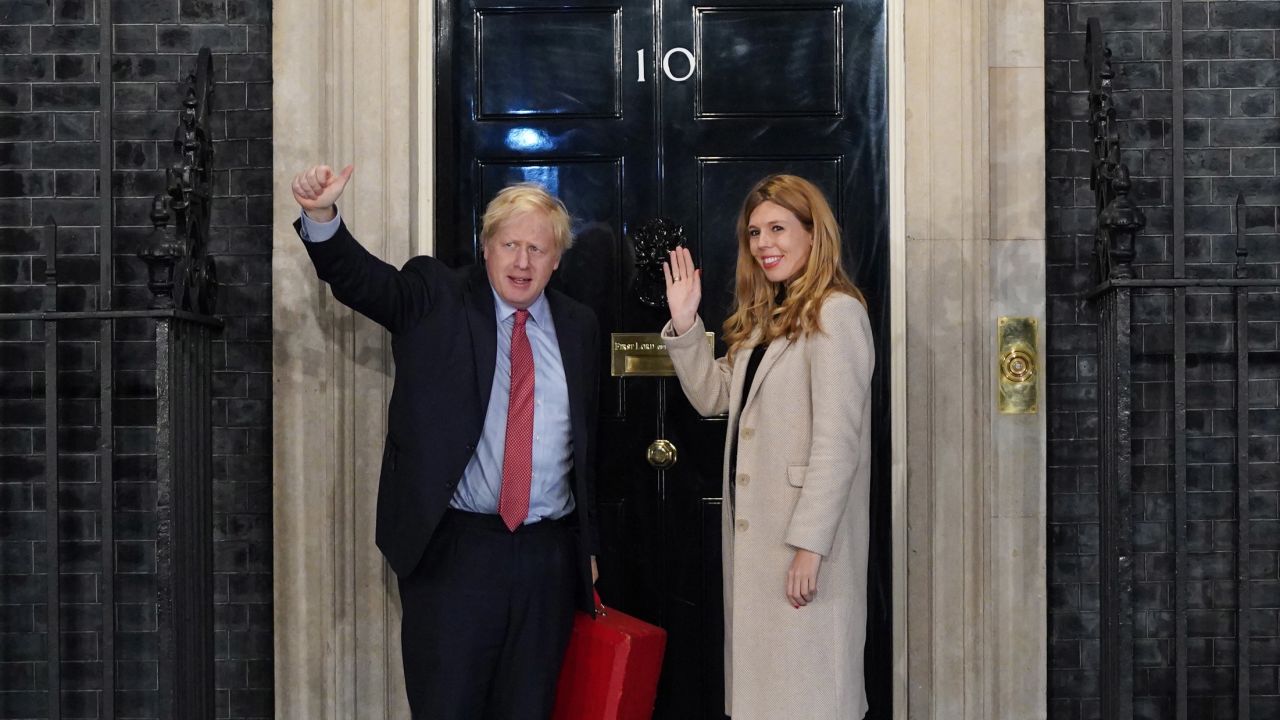
Johnson will give televised evidence to a parliamentary committee investigating whether he deliberately misled Parliament when he denied that any lockdown rules had been broken in 10 Downing Street, then his official residence and place of work as prime minister, during the Covid pandemic.
Though he is no longer leader, Johnson still looms large over the governing Conservative party – and is still a headache for the current PM, Rishi Sunak.
His resignation as prime minister followed a seemingly endless cycle of scandals which, according to repeated polls, left him deeply unpopular in the country at large. Despite this, there are still some – albeit far fewer than a year ago – vocal Johnson supporters within the party who believe he is the victim of a witch hunt.
To varying degrees, these supporters would like to see Johnson return to the frontline – or even potentially Downing Street – before the next election as they believe him to have some kind of Midas touch, something the party could do with as it trails badly in the polls.

Whether Johnson himself believes this or not is unknown, but the fact his loyalists are so willing to do his bidding means he can undermine Sunak at will, and, if he wanted, could organize rebellions that cause the PM real pain. And allies claim the temptation to do so is great, as Sunak has presented himself as the anti-Johnson since taking office, tearing up key pieces of policy in the process.
The danger for Johnson lies in the conclusion of the committee’s investigation, whenever that comes.
The focus of its inquiry is whether or not Johnson knew he was misleading Parliament when he said that all rules relating to Covid-19 were followed in Downing Street during national lockdowns. He made these claims in December 2021.
Subsequently, police issued over 100 fines to people working in Downing Street, including Johnson himself. Many of the events where rules were deemed by the police to have been broken were also attended by Johnson. It will therefore be up to Johnson to explain why he believed no rules to have been broken – and why he made the claim in Parliament. In some cases, these events were parties, where people wheeled suitcases of wine into the building while the rest of the country was locked up at home, unable to see dying relatives. Even Johnson’s director of communications at the time admitted that they couldn’t explain how the gatherings were within the rules.
Misleading Parliament is a breach of the ministerial code which governs ministers’ behavior.
The committee could recommend that he is suspended from Parliament. This is where things could start to get messy for Johnson and the Conservative party.

There are effectively three possible outcomes to the investigation. It could rule that Johnson did nothing wrong, or did so little wrong that an apology would suffice. It could recommend that he be suspended from Parliament for under 10 sitting days, which would require parliamentary approval. Or it could recommend he should be suspended for over 10 sitting days, which, if approved by Parliament, could trigger a recall election and see Johnson lose his seat altogether – although he lost high office he still represents a constituency in west London.
All three carry potential problems for Johnson and Sunak.
If the committee doesn’t recommend suspending Johnson, he and his ultra loyalists can claim, as they already have, that the whole investigation is a stitch-up orchestrated by people who wanted to bring him down. While Johnson’s group of allies is small these days, they are well-versed in making lots of noise. And if the polls remain bad for Sunak, they might start thinking about challenging his leadership ahead of the next election.
The least likely outcome, most insiders agree, is the long suspension leading to a by-election, if Johnson’s constituents demand it.
A Conservative majority will probably agree that the fallout from this would be too toxic and best avoided. It would raise questions about whether he should stand as a Conservative and if so, how much support he should be given by the party. The level of internal unrest all this could cause is almost certainly not worth it, given it’s not certain Johnson would even want to contest the seat. That said, as painful as this all would be, Johnson’s humiliation at the hands of his own constituents might be enough to end his political career.

Finally, if the committee recommends a shorter suspension, Conservative MPs are put in the unenviable position of having to publicly state whether or not they agree. While Johnson is not the political force he once was, he is still popular among the Conservative membership. He is still, according to pollster YouGov, the most famous politician in the country with a huge public platform – probably not the sort of person you want to upset. It would also mean that he is still a member of Parliament, and therefore able to cause trouble from inside the house, along with his supporters. And again, if polls for Sunak don’t improve, those loyalists might get ideas about a new leader as the election approaches.
None of the above are good options for those who want to see the back of Johnson, which, it is worth restating, is the majority of Conservative MPs. However, it is the final option that — despite its obvious risks – is generally deemed the best option among MPs.
Conservative MPs, by and large, say they are sick of the Boris Johnson show, even if they are reluctant to say so in public. They think that his time as PM proved him to be unfit for office. They think he has done more than almost anyone to wreck the reputation of the party and they hold him responsible for the collapse in Conservative support. But they also recognize that he is weaker than he’s ever been.
In recent weeks, Sunak has achieved things in office that Johnson couldn’t. He has reached a new Brexit deal that seemed impossible under Johnson. He has reached an agreement with France on illegal migrant crossings. He has restored a relative sense of calm to the financial markets.

Johnson has had a couple of digs at Sunak in recent weeks, but they have mostly been seen as petulant and did more to highlight his own failures. As one former government minister and Johnson ally told: “If he isn’t careful he risks ending up like Nigel Farage. Making lots of noise but looking increasingly desperate, tragic, and a bit ridiculous.”
Ask Conservative MPs what they think will happen if he’s suspended and you’ll get replies like “he’ll probably throw a few tantrums and then go away.” Others say “he’s just not really relevant anymore. We’ve all moved on,” and “We’ve decided to end the abusive relationship.”
The most common response you’ll get from MPs – both those who are sympathetic to Johnson and those who despise him – is that he knows he’s over and is more interested in making money now than anything else, so will probably just quietly disappear. Since leaving office he has made huge sums of money giving speeches and is likely to write books that will earn him more than he could as a mere prime minister. Even some of his greatest supporters seem resigned to it being over, while dismissing any findings of the investigation as corrupt and biased.
Perhaps the biggest surprise, if this does transpire as the beginning of the end of the Boris Johnson story, is that it wasn’t one scandal that did for him. Over time, more and more sleaze stuck to him and eventually became too heavy to carry. When he was gone, it turned out few missed his bellicose saber rattling and bombastic style. And if things stay this way, it could be that Britain’s most identifiable politician in a generation doesn’t go out with a bang, but simply fades into the background as everyone else moves on.




